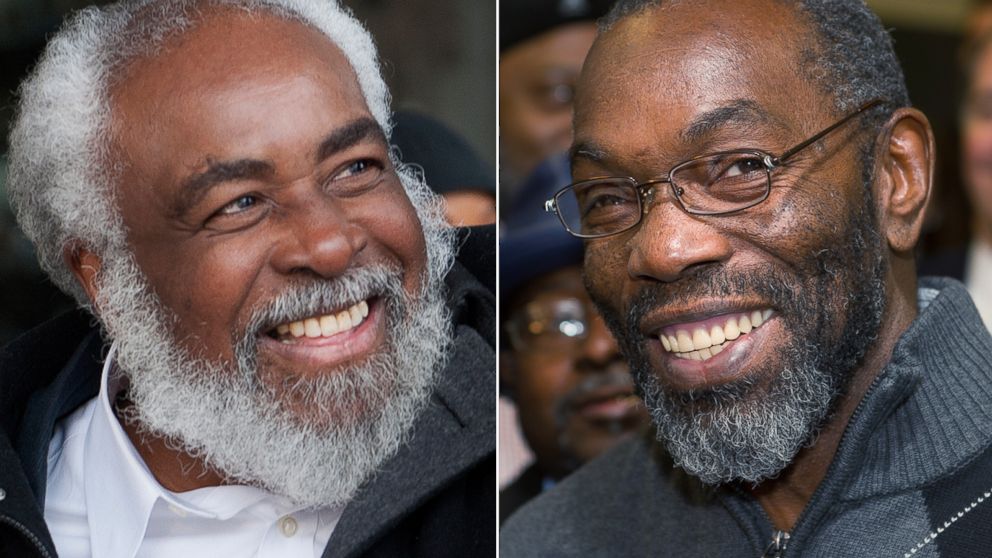2 Men Walk Free After 40 Years in Prison for Crime They Didn't Commit
Sentenced to die, two men go free after witness recants 40-year-old testimony.

— -- On May 25, 1975, Ricky Jackson and Wiley Bridgeman went to jail for a murder they didn’t commit. Sentenced to death on the testimony of a single juvenile witness, the men continued to protest their innocence through years of incarceration.
On Friday, nearly 40 years later, they walked out of prison as free men after the state’s witness in the case admitted that he concocted his testimony under police intimidation.
A case suffused with emotion culminated in exoneration Friday morning, when Cuyahoga County Common Pleas Judge Richard McMonagle formally dismissed all charges against Jackson after a brief hearing. Bridgeman, whose case was heard separately, was exonerated two hours later by Judge David Matia.
The two joined Bridgeman’s younger brother Ronnie, now known as Kwame Ajamu, who was found guilty of the same crime and eventually paroled in 2003.
The three were originally jailed for the 1975 murder of Harry Franks, a Cleveland businessman, after a 12-year-old witness named Edward Vernon told police that he had seen them attack the victim. No physical evidence linked them to the crime scene. Jackson was just 19 years old when he was sentenced to die, Wiley Bridgeman was 20, and Ronnie Bridgeman was 17.
“The English language doesn’t have words to express how I’m feeling right now,” Jackson, now 58, told reporters.
Wiley Bridgeman, now 60, quietly thanked the judge and attorneys in the courthouse as his case was dismissed. He had once been less than three weeks away from execution, rescued when the U.S. Supreme Court struck down Ohio’s previous capital punishment law in 1978.
The case was a major victory for the Ohio Innocence Project, based out of the University of Cincinnati's College of Law, which coordinated much of the investigation into the exonerating evidence and whose staff attorney, Brian Howe, represented Jackson. Terry Gilbert and David Mills, who together represent the brothers Bridgeman and Ajamu, worked with the Innocence Project during the case.
“It’s been years in the making,” Howe told ABC News. “Literally years of work, witness interviews, tracking people down -- all that culminated on Tuesday when the state withdrew its case.”
The first domino on the path to exoneration fell in 2011, when an investigation by reporter Kyle Swenson in The Cleveland Scene, an alternative weekly magazine, cast doubt on the 1975 convictions. Later, the Ohio Innocence Project took Jackson’s case and began investigating.
“Kyle Swenson did some great investigative journalism into the case before anyone had really heard about it, way before Ed Vernon had recanted his testimony,” Howe said. “Kyle’s article was the first thing I read when I took on this case, and that really compelled me to spend those extra nights and weekends digging into it.”
Vernon was sick and in the hospital, wracked with anxiety, when his minister convinced him to come clean. Later, the Innocence Project obtained a signed affidavit in which Vernon forswore the statements he made as a boy.
Last week, Vernon, now a 52-year-old man, took to the stand to give stunning, emotional testimony recanting his childhood statements.
“He was a wreck,” McMonagle, the judge who presided over Jackson’s trial, told ABC News.
“Eddie Vernon broke down on the stand frequently during testimony,” said Gilbert. “He talked about how his life was affected by the stress, the anguish, because for all these years he was afraid that if he came forward with the truth, then he would go to prison.”




